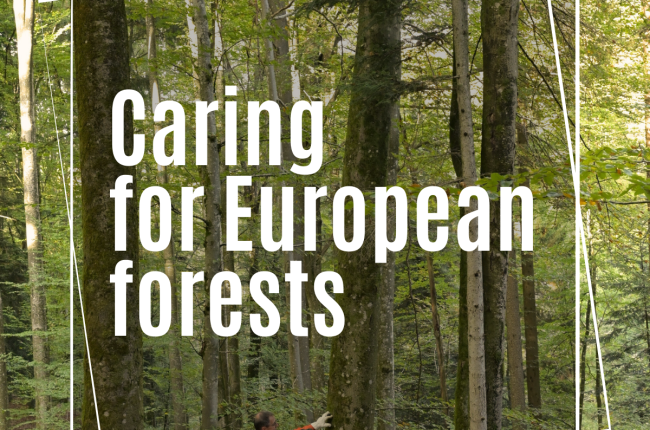Since the EU Forest Strategy was adopted in 2013, the EU policy framework and the EU policies affecting forests have strongly evolved. It is now more broadly recognized that forests and the forest sector play a crucial role in addressing major challenges in line with the United Nation’s Sustainable Development Goals and the climate change mitigation goals of the Paris Agreement.
In this context, special care must be taken to recognize the role of Sustainable Forest Management (SFM) to ensure forest ecosystem’s health and vitality and the delivery of multiple advantages to society and the bioeconomy.
However, forests and the forest-based sector are now increasingly expected to deliver on horizontal and sectoral EU policies addressing forests. These include:
- The 2050 Climate Change Mitigation Strategy that aims to maximize the potential of carbon storage in forests while providing raw materials for renewable products used to substitute for non-renewable materials as well as for energy.
- The land use and forestry regulation for 2021-2030 which commits Member States, for the first time in EU law, to compensate land use and forestry sector emissions by CO2 removals within the sector.
- The European Commission proposal for a taxonomy of sustainable investments which recognizes the central importance of sustainable forest management for protecting ecosystems.
- The EU Renewable Energy Directive that sets out bioenergy sustainability criteria related to forest management and GHG emissions savings.
- The updated EU Bioeconomy Strategy that encourages the transition to a more biobased circular economy, bringing new opportunities for jobs and growth to rural areas.
- The future CAP which is the main instrument at EU level to finance measures that support SFM and investments for enhancing the sustainability and competitiveness of the forestry sector.
- The EU Biodiversity Strategy which aims to halt the loss of biodiversity and ecosystem services in the EU and which the Commission has recently started to evaluate.
The consequences of these policies and strategies on forests and their sustainable management still need to be ascertained. Therefore, their implementation during the period 2020-2030 and beyond must be closely monitored from a forestry perspective. In this context, the EU Forest Strategy can and should provide a consistent basis on which to strengthen and further establish effective links between forests and the forest-based sector and any relevant EU policies.
Beyond consistency throughout its legislation and policies, the EU also needs an efficient tool to address forest and forest-related issues on the pan-European and international agendas. Member States and their pan-European partners in Forest Europe are determined to continue discussions on a legally binding agreement on forests. At global level, a well-prepared and coordinated input is needed to the UN Strategic Plan for Forests 2030 and the Global Forest Goals. A robust EU Forest Strategy is the appropriate instrument to ensure consistent input to these processes, thereby making the EU a strong and committed partner.
Over the last years the Strategy has undoubtedly played a positive role in this context. However, more needs to be done both at EU and national level to ensure even better policy consistency and coherence in the future. The roles of the Standing Forestry Committee and also of the Civil Dialogue Group on Forestry and Cork are very important in this context.
While the progress report highlights the importance of continued implementation of the strategy, it refrains from concrete recommendations for the post-2020 period. Therefore the undersigned organizations call on the European Commission, Parliament and Council to propose an updated and stronger EU Forest Strategy, before the end of 2019, which encompasses recent and upcoming EU policies and is adequately resourced at the appropriate levels of the European institutions.
CEPF – Confederation of European Forest Owners
CEETTAR – European Organisation of Agricultural, Rural and Forestry Contractors
CEI-BOIS – European Confederation of the Woodworking Industries
CEJA – European Council of Young Farmers
CEPI – Confederation of European Paper Industries
COPA COGECA - European Farmers and European Agri-cooperatives
EFFAT – European Federation of Food, Agriculture and Tourism Trade Unions
ELO – European Landowners’ Organization
EUSTAFOR – European State Forest Association
FECOF - European Federation of organizations representing forest municipalities
UEF – Union of European Foresters
USSE – L’Union des Sylviculteurs du Sud de l’Europe




